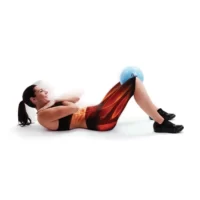Vertigo & Dizziness
Article by J. Miller, S.Armfield

Deciphering Vertigo and Dizziness: A Physiotherapist’s Guide to Finding Your Balance
Feeling off-balance or as though the world around you is spinning can be more than just unsettling; it can significantly impact your day-to-day life. Vertigo and dizziness, while often used interchangeably, describe distinct experiences. Understanding these differences is the first step in managing them effectively.
What is the Difference Between Vertigo and Dizziness?
Vertigo and dizziness are terms often used interchangeably in everyday language, but they describe different sensations and have distinct implications for diagnosis and treatment.
Vertigo: Beyond Just Dizziness
Vertigo is specifically the sensation of feeling like you or your surroundings are spinning or moving. It’s not just a feeling of being off-balance or light-headed; it’s a distinct sense that the world is rotating around you, or you are spinning within your environment. Vertigo is typically a symptom of a problem within the vestibular system of the inner ear, which helps regulate balance and spatial orientation. Conditions affecting this system, such as Benign Paroxysmal Positional Vertigo (BPPV), Meniere’s disease, or vestibular neuritis, can lead to vertigo.
Dizziness: A Broad Spectrum
Dizziness is an umbrella term that captures a wide array of sensations, from feeling faint, weak, or unsteady to experiencing a profound sense of imbalance, known as disequilibrium. This condition does not always present with the sensation of movement, distinguishing it from vertigo. The triggers for dizziness are vast and varied, encompassing everything from sudden drops in blood pressure and dehydration to the side effects of medications. Psychological factors, such as anxiety, can also lead to dizziness, highlighting its complex nature.
Given its potential to signal more serious health issues, including heart conditions or neurological disorders, it’s crucial to pay attention to persistent dizziness. Ignoring it might overlook significant underlying health problems that require attention.
In summary, the key difference lies in the specific sensation experienced: vertigo is the feeling of spinning or moving, while dizziness is a more general sense of being off-balance or lightheaded. Identifying whether a person is experiencing vertigo or another form of dizziness is crucial for healthcare professionals to determine the underlying cause and the most appropriate treatment approach.

What Do People Get Vertigo?
People can experience vertigo for various reasons, often related to issues with the inner ear, which plays a crucial role in balance and spatial orientation. Here are some of the most common causes:
- Benign Paroxysmal Positional Vertigo (BPPV): This is the most common cause of vertigo. It occurs when tiny calcium particles (canaliths) clump up in canals of the inner ear. The inner ear sends signals to the brain about head and body movements relative to gravity. BPPV can cause intense, brief episodes of dizziness related to changes in the position of your head.
- More info: Benign Paroxysmal Positional Vertigo (BPPV)
- Meniere’s Disease: This disorder involves an abnormal buildup of fluid in the inner ear. It’s characterized by episodes of vertigo along with ringing in the ears (tinnitus) and hearing loss. Meniere’s disease typically affects only one ear.
- More info: Meniere’s Disease
- Migraine-associated Vertigo: Some people with migraines may experience vertigo as part of their migraine symptoms. This type of vertigo can happen as part of the migraine or independently of the headache.
- More info: Vestibular Migraine
- Head or Neck Injury: Injury to the head or neck can also lead to vertigo, which may be related to damage to the vestibular system.
- More info: Cervicogenic Vertigo
- Vestibular Neuritis or Labyrinthitis: This is an inner ear problem usually related to infection (either viral or bacterial) that causes inflammation around the nerves that are important for helping the body sense balance. Vestibular neuritis affects the nerve of the vestibular system in the ear that detects balance, while labyrinthitis affects both the nerve of the vestibular system and the hearing nerve.
- Medications: Certain medications can cause vertigo as a side effect, especially those that affect the inner ear or the brain.
- Stroke or Brain Problems: Less commonly, vertigo can be caused by problems in certain parts of the brain, such as a stroke or tumor. These conditions can affect the brain’s balance centers and lead to vertigo.
Understanding the underlying cause of vertigo is crucial for effective treatment. For many people, vertigo can be a symptom that is managed with the help of healthcare professionals, including physiotherapists specialised in vestibular rehabilitation.
What are the Top 3 Causes of Dizziness?
Dizziness can stem from a variety of causes, ranging from benign to serious health conditions. However, three common causes stand out due to their frequency and the wide range of individuals they affect:
- Low Blood Pressure (Hypotension): When blood pressure drops suddenly, the brain may not receive an adequate blood supply, leading to feelings of dizziness or lightheadedness. Standing up too quickly from a seated or lying position—a condition known as orthostatic hypotension—can cause a brief drop in blood pressure, resulting in dizziness.
- Dehydration and Inadequate Nutrition: Dehydration occurs when you lose more fluids than you take in, and not having enough water can lead to a decrease in blood volume, causing dizziness. Similarly, inadequate nutrition, such as not eating enough throughout the day or having low levels of certain vitamins like B12 or iron, can also lead to feelings of dizziness due to decreased energy supplies to the brain and other parts of the body.
- Inner Ear Disorders: The inner ear contains structures that are crucial for maintaining balance. Disorders affecting the inner ear, such as labyrinthitis (inflammation of the inner ear structure), vestibular neuritis (inflammation of the vestibular nerve), and Meniere’s disease (characterized by fluid build-up in the inner ear), can disrupt the body’s sense of balance and spatial orientation, leading to episodes of dizziness.
While these are three common causes, it’s important to note that dizziness can also be a symptom of many other conditions, including anxiety disorders, anemia (low iron), neurological conditions, and cardiovascular issues like arrhythmias or heart disease. If dizziness is persistent or accompanied by other symptoms, it’s crucial to consult a healthcare professional for a proper diagnosis and treatment plan.
Recent Advances in Understanding and Treatment
Recent research highlights the effectiveness of vestibular rehabilitation – a physiotherapy approach focusing on restoring balance and minimising dizziness. Tailored exercises designed by physiotherapists can help retrain the brain to correctly interpret signals from the inner ear, significantly improving symptoms for many individuals.
Conclusion: Regaining Your Balance
Understanding vertigo and dizziness is the first step toward managing them effectively. With the right approach and professional guidance, you can navigate these challenges and reclaim your sense of balance. Remember, you’re not alone on this journey; physiotherapists are here to support you every step of the way.
What to Do? Seeking Professional Advice
If vertigo or dizziness becomes a recurring part of your life, it’s time to consult a physiotherapist or doctor. They can offer personalised advice and treatment plans, including vestibular rehabilitation exercises, to address your specific needs. Ignoring symptoms can lead to a decline in quality of life, so proactive care is key.
Rochedale - Call 38410277
Book Online: RochedaleSalisbury - Call 32751044
Book Online: SalisburySandgate - Call 32691122
Book Online: SandgateRelated Articles
- Cervicogenic Dizziness & Cervical Vertigo – Tips & Treatment: Explains how neck disorders can lead to dizziness and vertigo, underscoring the link between cervical health and balance.
- Vertigo Causes & Dizziness Causes – Advice & Managing Tips: Delves into the common origins and management strategies for these unsettling sensations.
- Vertigo Dizziness Management: Discusses comprehensive management approaches for vertigo and dizziness, highlighting the importance of understanding underlying causes.
- Vestibular Physiotherapy: Balance & Dizziness Solutions: Explores how vestibular physiotherapy can aid in managing and treating balance issues and dizziness.
- Vestibular Rehabilitation Therapy (VRT): Details on how VRT can help patients regain steadiness, providing a step toward balance recovery.
- What are the Symptoms of BPPV?: Information on the symptoms of Benign Paroxysmal Positional Vertigo (BPPV), aiding in understanding this common vestibular disorder.
- BPPV Treatment Options: Discussing the assessment and highly successful treatment of BPPV. You’ll regret whu you kept spinning for far too long after you read this.
- Vestibular FAQs: Answers frequently asked questions about vertigo and dizziness, enhancing understanding of these conditions.
- Meniere’s Disease: Provides insights into Meniere’s Disease, including symptoms, diagnosis, and management, connecting directly to the keyword of vertigo.




















